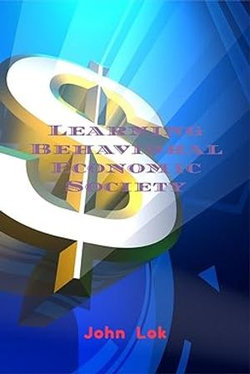Behavioral Economic Society Book by John Lok
The book referring to is titled "Behavioral Economics and Social Development: Theories, Applications, and Implications" authored by my opinion. This work explores the intersection of behavioral economics and social development, providing insights into how behavioral economic theories can be applied to understand and address various social issues.
Application of Behavioral Economic Theory
Behavioral economics integrates insights from psychology with economic theory to better understand decision-making processes. In the context of social development, these theories can be applied in several ways:
Understanding Decision-Making: Behavioral economics helps explain why individuals or communities may make choices that seem irrational from a traditional economic perspective. For instance, people might prioritize immediate gratification over long-term benefits, which can impact their health, education, and financial decisions.
Policy Design: By understanding the cognitive biases and heuristics that influence behavior, policymakers can design interventions (often referred to as "nudges") that encourage better decision-making without restricting freedom of choice. For example, simplifying the process for signing up for social programs can increase participation rates.
Social Norms and Incentives: The book discusses how social norms influence behavior and how incentives can be structured to align with these norms. For instance, community-based programs that leverage peer influence can enhance participation in health initiatives or educational programs.
Evaluation of Programs: Behavioral economics provides tools for evaluating the effectiveness of social programs by considering not just economic outcomes but also psychological factors that affect engagement and success rates.
Research Aim
The primary aim of research in this area is to develop a deeper understanding of how behavioral economic principles can inform strategies for social development. This includes identifying barriers to effective policy implementation and exploring innovative solutions that take human behavior into account.
By applying behavioral economic theories, researchers aim to create frameworks that enhance the efficacy of interventions aimed at improving societal outcomes such as poverty alleviation, education access, health care utilization, and overall community well-being.
In summary, my work contributes significantly to our understanding of how behavioral economics can be utilized in practical applications within social development contexts.



Share This eBook: